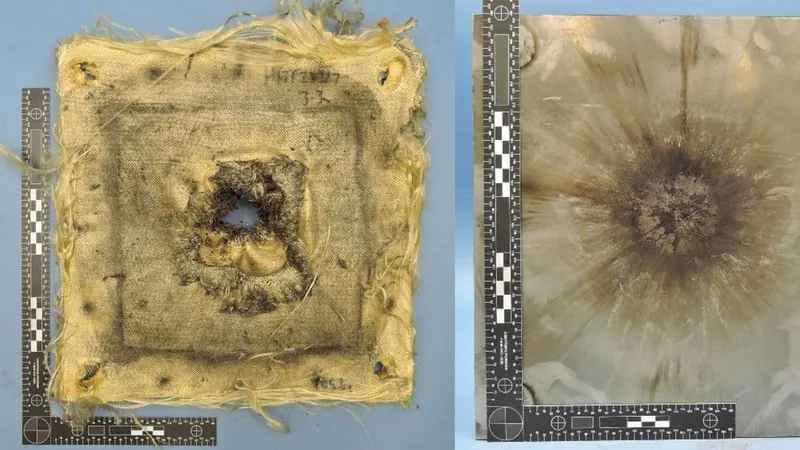
Shocking New Study Reveals How Parkinson's Disease Medications Sabotage Decision-Making!
2024-09-24
Introduction
Recent research has unveiled a startling link between Parkinson's disease (PD) treatments and impaired decision-making. This groundbreaking study conducted by a team at Fujita Health University in Japan pinpointed a brain structure known as the external globus pallidus (GPe) as a potential culprit behind these troubling side effects, paving the way for future treatment innovations.
Understanding Parkinson's Disease
Parkinson's disease, often simply referred to as Parkinson's, is a progressive neurodegenerative disorder that afflicts millions across the globe. Symptoms such as tremors, slowed movements, and balance issues are driven by the loss of dopamine-producing neurons. While current medications offer symptomatic relief, they can inadvertently lead to serious behavioral issues, including compulsive gambling, binge eating, and excessive shopping.
The Research Study
In an extraordinary study published on August 14, 2024, in the *International Journal of Molecular Sciences*, Assistant Professor Hisayoshi Kubota and his colleagues delved into the effects of a common PD medication called pramipexole (PPX). This medication works by mimicking dopamine, activating receptors in the brain that patients with PD lack.
Methodology
The researchers utilized a rodent model by injecting mice with a toxin known as 6-hydroxydopamine (6-OHDA), which damages neurons similar to those affected in Parkinson’s disease. After administering PPX, the mice were subjected to a touchscreen gambling task designed to evaluate their decision-making capabilities. The results were eye-opening—these mice were more inclined to select high-risk, high-reward options, such as indulging in strawberry milkshakes, even when faced with a risk of adverse outcomes.
Findings and Implications
But what’s driving these poor choices? Further examination revealed that the GPe was hyperactivated after PPX treatment, suggesting that increased neural activity in this region was linked to the risky decisions made by the mice. Remarkably, when the researchers chemically inhibited neurons in the GPe, the mice exhibited significantly improved decision-making, highlighting this area’s central role in the associated side effects.
Future Directions
The implications of this research extend beyond academic intrigue; this could lead to the development of new, targeted therapies that specifically address the dysfunctions in the GPe, potentially reducing impulsive behaviors in Parkinson's patients. Dr. Kubota remarked, "Our findings could revolutionize the way we approach medications for Parkinson's disease, helping to mitigate decision-making impairments.”
Conclusion
Moreover, this research underscores the importance of raising awareness about the effects of PD medications not just among healthcare professionals but also for patients and their caregivers. Understanding the complexities of Parkinson's treatment could drive proactive discussions about care strategies and inform families about potential behavioral shifts.
Ultimately, these new insights into the mechanics of decision-making in the context of Parkinson’s disease underscore a vital lesson: as we navigate our daily choices, reflecting on the possible consequences can lead us to make choices that enhance our well-being. This pioneering study opens doors for improved treatment protocols that could enhance the quality of life for those living with Parkinson’s disease. Will this research lead to groundbreaking changes in how we understand and treat Parkinson's patients? Only time will tell!


 Brasil (PT)
Brasil (PT)
 Canada (EN)
Canada (EN)
 Chile (ES)
Chile (ES)
 España (ES)
España (ES)
 France (FR)
France (FR)
 Hong Kong (EN)
Hong Kong (EN)
 Italia (IT)
Italia (IT)
 日本 (JA)
日本 (JA)
 Magyarország (HU)
Magyarország (HU)
 Norge (NO)
Norge (NO)
 Polska (PL)
Polska (PL)
 Schweiz (DE)
Schweiz (DE)
 Singapore (EN)
Singapore (EN)
 Sverige (SV)
Sverige (SV)
 Suomi (FI)
Suomi (FI)
 Türkiye (TR)
Türkiye (TR)